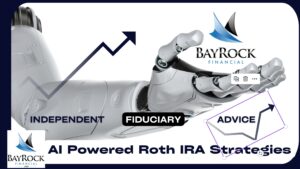Electric Vehicle ETF Strategy
When it comes to EV investing, there are pure plays like Electric Vehicle maker Tesla (TSLA). But there are also plenty of opportunities to invest in semiconductor makers like Nvidia (NVDA), which produce the chips that act as the brain for your EV (Electric Vehicle).
You could buy shares of companies that produce low-cost lithium (the key component in EV batteries). Or you could put your money to work in a more diversified strategy like an ETF that focuses on EV production.
Electric Vehicle sales, which first topped 1 million globally in 2017 and hit 2 million in 2018, are expected to increase to 4 million by 2020 and 21 million by 2030, according to a Deloitte report.
As an Investor, I’m making a bet on Electric Vehicles going mainstream sooner rather than later. The global sales outlook for Electric Vehicles is promising but who knows which company or companies will come out on top.
- Electric Vehicles share of the total automotive market (now roughly 2%) is expected to grow rapidly, reaching 10% by 2024, Deloitte says. **China is the biggest EV market, accounting for roughly half of sales, followed by Europe and the U.S.**
- **Volkswagon to produce 1,000,000 Electric Vehicles Annually:**[Company predicts it will produce 1 million per year by 2023](https://www.usatoday.com/story/money/2019/12/27/automaker-volkswagen-accelerating-move-into-battery-powered-cars/2760128001/)
- A major change is expected in 2022, when the cost of an electric vehicle may fall enough to equal the cost of your gas-powered car. If the costs of ownership are no longer a barrier to buying electric vehicles, we’re likely to see more of them in the neighborhood.
- Electric transportation is a trend that?s not going away anytime soon and its creating long-term growth opportunities for investors. I’m pretty bullish on EV technology because Electrified cars are a seriously disruptive technology.
So how should investors take advantage of the opportunities in EV Technology?
Buy Single Stocks like Tesla
Tesla has a few big challenges.
- It must prove it can post consistent profits, control costs, meet production and delivery targets — while fending off rivals.
- Tesla has to cope with a recent sales slowdown in China and roll out new models at an affordable price.
- The electric car maker surprised Wall Street with third-quarter 2019 earnings of 78 cents a share vs. an expected loss.
- Tesla remains an industry leader working towards sustainable profitability.
Buy Chipmakers
- The more technologically advanced cars become, the greater the need for semiconductor chips.
- Chips are needed to power EV batteries and powertrain components, as well as provide software and firmware updates.
- The shift to self-driving cars will continue to boost chip demand.
- Chips are the brains of your electric vehicle
Buy Auto Parts Suppliers
The companies that sell EV parts and components will benefit from the mass adoption of electric vehicles and bulk sales to ?fleet? buyers like Amazon.
However, even though batteries are the key component that propel EVs down the highway, battery makers may be offering less value to investors, mainly because batteries are quickly becoming a low-entry commodity.
I’m less bullish on car manufacturers that are just now getting into Electric Vehicle production (Ford, GM, Volkswagen) because their profits are likely to be offset by the high cost of EV manufacturing relative to gas-powered cars.
Big Automakers will continue to face the challenges of investing in the Electric Vehicle future while meeting strict emissions standards and government regulations on their old gas-powered vehicles.
EV Electric Vehicle ETF Strategy
My favorite investment vehicle is the ETF (Exchange Traded Fund) for a number of reasons that I share with every investor (client) I’ve served since starting [BayRock Financial.](https://bayrockfinancial.com)
Here’s My EV ETF Watchlist
Electric DRIV
Global X Autonomous & Electric Vehicles ETF (DRIV)
With more than $800 million in assets under management, DRIV is one of the largest electric vehicle ETFs out there. However, it’s worth noting that among its 75 or so holdings, the “autonomous” players outweigh the core EV companies. For instance, top holdings at present include Google parent Alphabet (GOOG, GOOGL), chipmaker Intel Corp. (INTC) and enterprise software icon Microsoft Corp. (MSFT). Those are hardly what you would call direct plays on electric vehicles, but these firms are involved with mobility solutions that go hand-in-hand with the next generation of automobiles. Familiar EV names are indeed featured, just further down the list of holdings. DRIV comes with an annual expense ratio of 0.68%, or $68 for every $10,000 invested.
Electric KARS
KraneShares Electric Vehicles & Future Mobility ETF (KARS)
With just less than $200 million in assets, KraneShares offers a fund that is similar in name to the prior Global X electric vehicle ETF. The difference is the holdings are much more aligned with EVs than with the autonomous vehicle players that dominate DRIV. Near the top of the list right now for KARS is Nio (NIO), the dynamic Chinese electric car manufacturer that many think could give Tesla a run for its money in the region. There are some other software and chipmaker stocks on the list, but KARS seems to be more heavily weighted toward actual EV manufacturers than other funds on this list that are broadly interested in “mobility” technologies. The fund has a slightly higher expense ratio of 0.72%.
iShares Self-Driving IDRV
iShares Self-Driving EV and Tech ETF (IDRV)
Another modest fund with about $300 million in assets, this iShares fund may have the longest list of total components with about 100 holdings at present. At the top of the list are favorites like Tesla, but you’ll also find traditional automakers such as General Motors (GM) and Toyota Motor Corp. (TM) that continue to invest heavily in EVs. There are also software and hardware firms helping to support this transition from the old automotive industry to the new. The number of legacy players may turn off investors who just want to play tomorrow’s electric vehicle leaders, but all in all, this is a great one-stop fund to play the broad trend of EVs in all forms. The expense ratio is 0.47%.
Lithium Battery BATT
Amplify Lithium & Battery Technology ETF (BATT)
Of course, one way to cut out the old-school car companies is to forget about cars altogether and focus on the main component that is powering (pardon the pun) the EV revolution. That would be highly efficient lithium batteries that allow for extended ranges and rapid charging times. Top components among BATT’s 90 or so holdings at present include lithium miners like BHP Group (BHP) as well as companies like Tesla and Samsung that make the batteries themselves. BATT is the smallest fund on the list, at only about $125 million in assets, but it’s still a decent size to give investors a footprint in the battery sector if they are so inclined. Its expense ratio is 0.59%.
Lithium Battery LIT
Global X Lithium & Battery Tech ETF (LIT)
At $3 billion in assets, LIT is actually the largest electric vehicle ETF on this list. It takes the approach of the prior lithium and battery ETF but in a more limited way, with only about 40 companies and roughly 25% of assets in the top three companies alone ? Albemarle Corp. (ALB), Ganfeng Lithium Co. (GNENF) and Eve Energy Co. This focus is surprisingly sophisticated, with Ganfeng being a pink sheet offering not easily traded in the U.S. and Eve Energy only traded on Chinese exchanges. There is clear risk with a small list of stocks that can be illiquid, but in many ways, this is a strategy that’s perfect to explore via an ETF instead of individual stocks. You won’t find true EV manufactures other than Tesla, but it’s undeniable the holdings of LIT are powering the electric vehicle revolution. The fund has an expense ratio of 0.75%. The fund comes with an expense ratio of 0.75%.
Smart Mobility HAIL
SPDR S&P Kensho Smart Mobility ETF (HAIL)
A roughly $250 million hybrid fund, this “smart mobility” ETF focuses on electric vehicle stocks as well as other emerging transportation technologies. This makes for a strange mix of components that includes electric car plays such as charging network operator Blink Charging Co. (BLNK) and hydrogen fuel cell player Plug Power (PLUG), but also AgEagle Aerial Systems (UAVS), which makes automated agricultural tractors and drones for use in farming applications. The good news is that this SPDR electric vehicle ETF rebalances regularly with an aim of being “equal weight” in all stocks, so the list of about 60 components won’t ever be too focused on one strange company at the expense of core EV firms. HAIL has an expense ratio of 0.45%.
ARK Innovation [with Tesla] ARKK
ARK Innovation ETF (ARKK)
The last ETF on our list ? as it’s not strictly an EV play ? this innovation-oriented fund is by far the largest of the group with roughly $25 billion under assets. As you can imagine, innovative electric vehicle and battery companies make up a big share of the fund, with top holdings at present including Tesla at nearly 10% of the portfolio. Catherine Wood, founder, CEO and chief investment officer of Ark Investment Management has only added to the fund’s TSLA position in recent days as shares have slumped ? a testament to the firm’s belief in the EV stock. For investors looking to cast a wide net on tech companies that, like EV firms, could be a vital part of the future global economy, ARKK is an interesting fund to buy.
So, what’s on your Watchlist?




